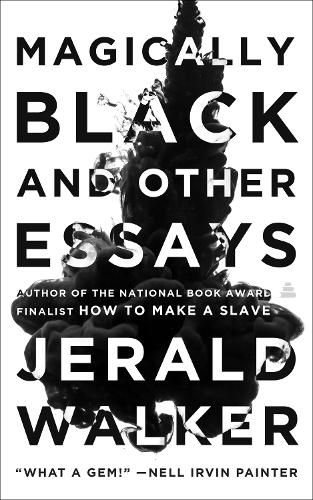Readings Newsletter
Become a Readings Member to make your shopping experience even easier.
Sign in or sign up for free!
You’re not far away from qualifying for FREE standard shipping within Australia
You’ve qualified for FREE standard shipping within Australia
The cart is loading…






In this engaging follow up to How to Make a Slave and Other Essays, the recipient of PEN New England Award for nonfiction and finalist for the National Book Award sharply examines and explains Black life and culture with equal parts candor and humor.
In Magically Black and Other Essays Jerald Walker elegantly blends personal revelation and cultural critique to create a bracing and often humorous examination of Black American life. He thoughtfully addresses the inherent complexities of topics as eclectic as incarceration, home renovations, gentrification, the crip walk, pimping, and the rise of the MAGA movement, approaching them through various Black perspectives, including husband, father, teacher, and writer. The collection's overarching theme is captured in the titular essay, which examines the culture of heroic action African Americans created in response to their enslavement and oppression, giving proof to Albert Murray's observation that the "fire in the forging process . . . for all its violence, does not destroy the metal that becomes the sword."
$9.00 standard shipping within Australia
FREE standard shipping within Australia for orders over $100.00
Express & International shipping calculated at checkout
In this engaging follow up to How to Make a Slave and Other Essays, the recipient of PEN New England Award for nonfiction and finalist for the National Book Award sharply examines and explains Black life and culture with equal parts candor and humor.
In Magically Black and Other Essays Jerald Walker elegantly blends personal revelation and cultural critique to create a bracing and often humorous examination of Black American life. He thoughtfully addresses the inherent complexities of topics as eclectic as incarceration, home renovations, gentrification, the crip walk, pimping, and the rise of the MAGA movement, approaching them through various Black perspectives, including husband, father, teacher, and writer. The collection's overarching theme is captured in the titular essay, which examines the culture of heroic action African Americans created in response to their enslavement and oppression, giving proof to Albert Murray's observation that the "fire in the forging process . . . for all its violence, does not destroy the metal that becomes the sword."